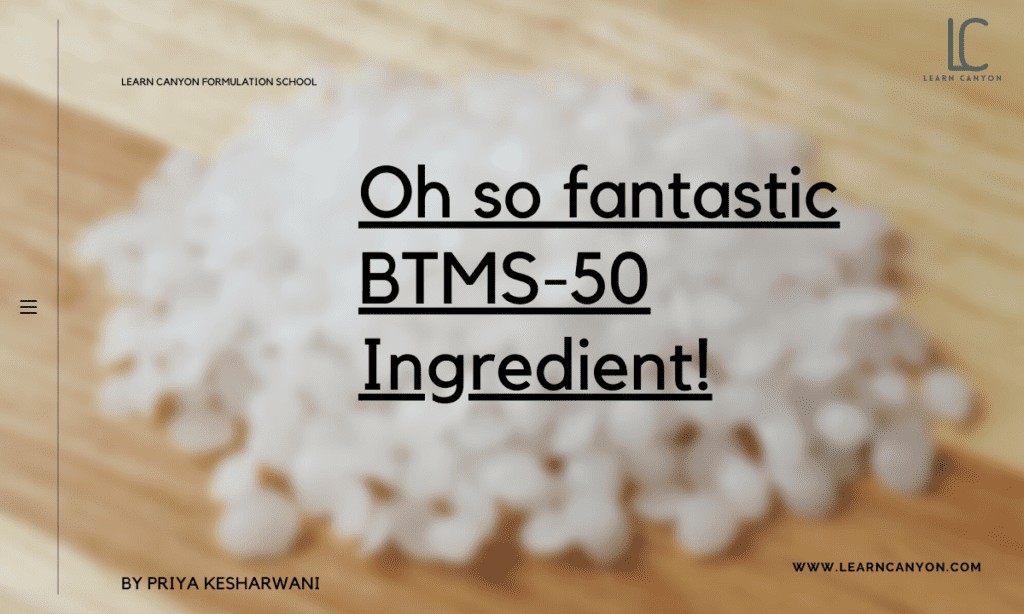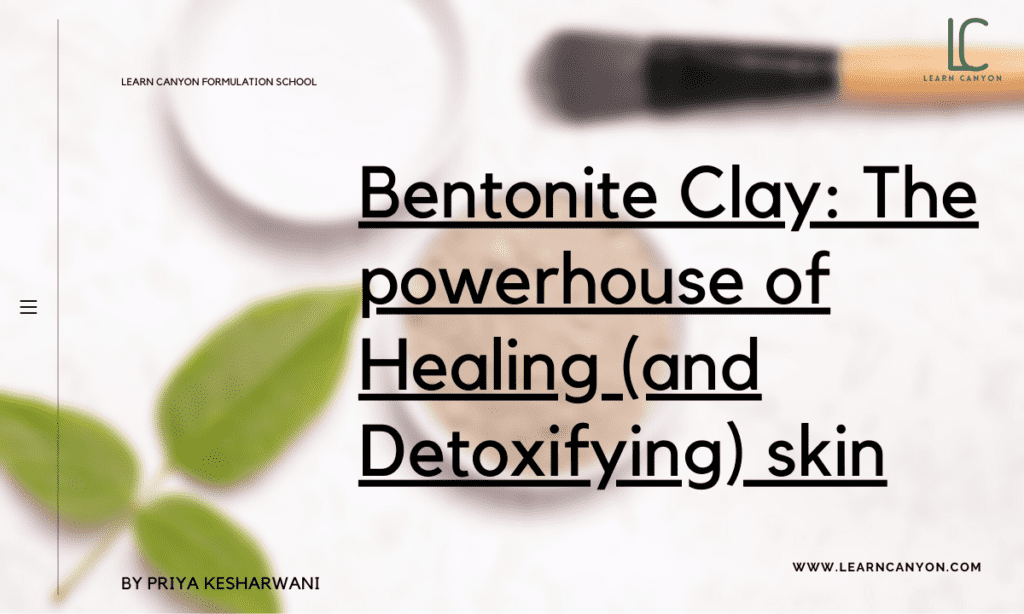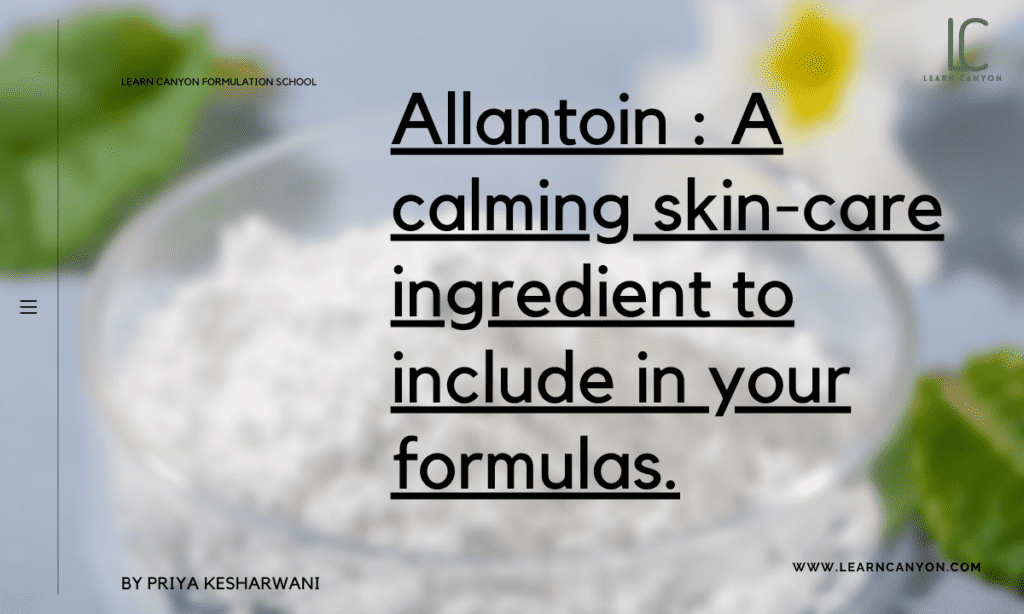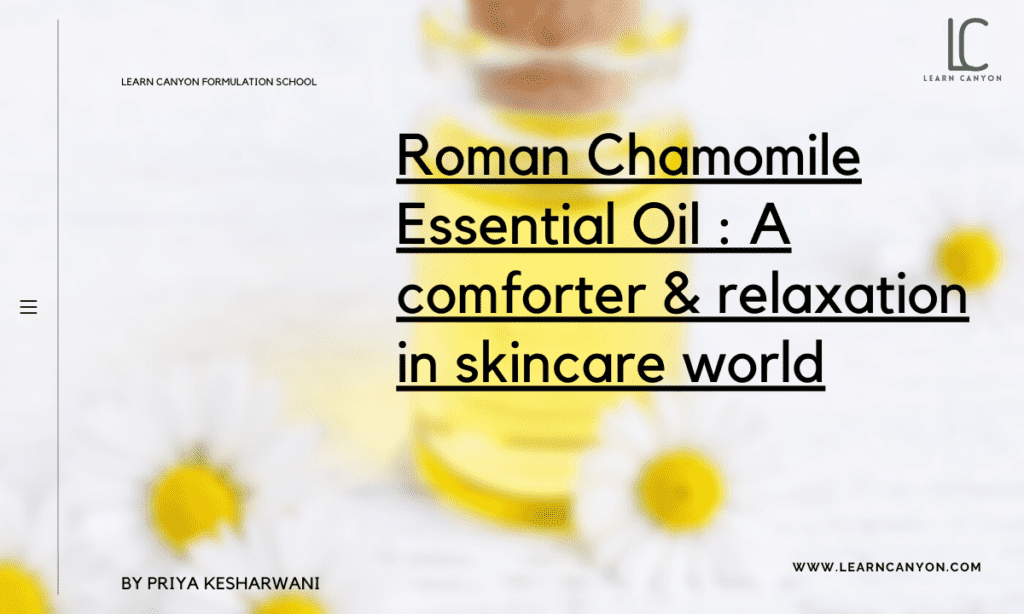
Bentonite Clay: Powerhouse to Heal and Detoxify skin

Bentonite Clay
There’s a lot to like in today’s environment. Returning to your roots can also have a number of advantages. Natural therapies that have been tried and true may be just what you need to start feeling better. Bentonite clay is a more recent “rediscovery” in a long line of health “finds.” However, since scientific data backs up the benefits, it might be worth embracing. Have you ever used Bentonite clay before? If that’s the case, how do you put it to use? So far, what kinds of consequences have you noticed?
What Is Bentonite Clay?
Bentonite clay, often known as “Montmorillonite,” is a volcanic ash-based clay. The name comes from Fort Benton, Montana, which is home to the world’s largest known bentonite clay deposit. It is odourless grey/cream in colour and has a silky, very fine consistency. Unlike some other clays, it does not stain and is easy to work with in beauty and natural treatment regimens. Healing clays like bentonite are high in minerals like silica, calcium, magnesium, salt, iron, and potassium. Toxins, heavy metals, pollutants, and chemicals are absorbed and eliminated as well.
| What is it? | A fine grey clay with a thick consistency (Calcium Bentonite). |
|---|---|
| INCI | Sodium Bentonite Powder |
| Appearance | A fine grey powder with light and dark flecks. |
| Texture | Smooth and dusty. |
| Recommended Usage | Up to 100% |
| Solubility | Insoluble |
| Melting point | NA |
| Boiling point | NA |
| pH | 8.5-10.5 |
| Aroma | Dusty and rather unremarkable. |
| Why do we include it in formulations? | It's a powerful clay that works wonders on pore cleansing. |
| How to work with it? | Face masks are the most common application. |
| Applications | On the skin, bentonite clay acts as a sponge. It absorbs dirt and oil in the same way as sebum does. Acne can be caused by excessive sebum production. The antibacterial and anti-inflammatory characteristics could aid in the healing of your skin. |
| Absorption rate | Fast |
| Strength | It's a tough clay with a peculiar texture when wet. It becomes jelloid and absorbent in a way that other clays don't. |
| Weaknesses | It has a high pH, which can irritate the skin of those who are more sensitive. |
| Substitution | It's strange and unusual; it's not a good substitute for other clays, and it's not a good substitute for other clays. |
| How to store it? | Stored in a cool, dark and dry place. |
| Shelf life | Bentonite clay should last for a long time. |
Fun Fact
| Type of ingredient | Mineral-rich clay |
|---|---|
| Main benefits | Exfoliates, absorbs excess oil, and is anti-inflammatory. |
| Who should use it | Those with oily or acne-prone skin may benefit from bentonite clay, while those with dry or sensitive skin may find it too drying. |
| How often can you use it? | The frequency varies depending on the product and your skin type, but it's normally once a week. |
| Works well with | It can be combined with a range of other compounds for synergistic effects, such as tea tree oil, apple cider vinegar, and turmeric, to mention a few. |
| Doesn't work with | Combine it with other acne-fighting substances such as acids or retinoids with caution, as it can be drying on its own. |
| How to use | Added to your formula during the water phase |
Benefits of Bentonite Clay
The detoxifying properties of bentonite clay are its main calling card, but it can also be used for a variety of other purposes.
- The clay’s capacity to absorb excess oil, according to Jeffy, makes it ideal for acne-prone skin.
- Reduce the appearance of visible pores: The absorptive properties, according to Jeffy, create a temporary tightening impact on the skin, which helps to reduce the appearance of visible pores.
- Bentonite clay is naturally anti-inflammatory and can help alleviate inflammatory acne, according to Fahs.
Mechanisms of action
Bentonite clay is a natural clay that gets its name from Fort Benton, Wyoming, where the majority of its sources are found. This mineral-rich, soft and fine powder is made from volcanic ash. It’s an aluminium phyllosilicate clay that absorbs moisture. Because of its negative charge, it is extremely adsorbent in nature. It aids in the detoxification process since it can attach to things like pollutants and dirt with a high affinity
Side effects of Bentonite Clay
Topical application of bentonite clay, according to Jeffy, is far less likely than ingestion of the ingredient to cause any safety concerns. However, there’s always the risk of sensitivity or a reaction. Do a small patch test on your inside forearm before applying it all over your face, and if you have irritation, stop using it. Furthermore, bentonite clay is better suitable for those with oilier skin types, as it can be excessively drying for those with dry skin.
How to use it in formulation?
Face masks made of Bentonite clay are very popular at high-end spas, but there’s no reason you can’t manufacture your own at home and save money on a spa visit! To save money on a spa visit, make your own Bentonite clay mask at home. The method is simple. To produce your own paste, combine one part Bentonite clay with one part water; one tablespoon of each should serve most of the time. Then rub it all over your face, wait 20 minutes, and then wash it off with warm water and a washcloth.
Work well with other ingredients
It can be used with a variety of different chemicals, such as tea tree oil, apple cider vinegar, and turmeric, for synergistic effects.




